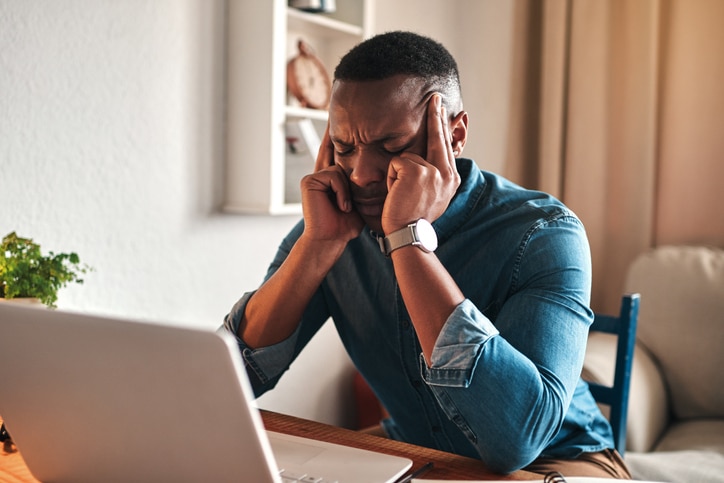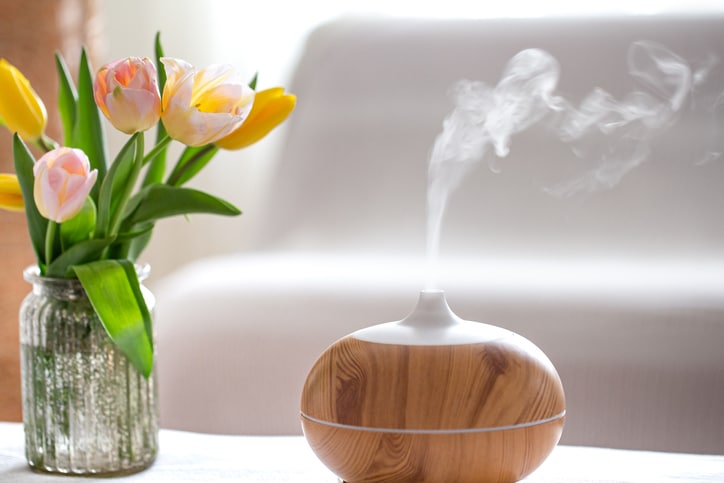As the COVID-19 pandemic wears on and leads to stress, you may find yourself living on autopilot, going through the motions without focusing on what you’re doing.
Dissociating, or zoning out, is a common response, but it’s not a very effective one, says Theresa Murphy, LCSW, director of behavioral health for the Methodist Family Medicine Residency Program.
Instead, Murphy recommends trying the exact opposite: immersing yourself completely in the moment. This practice of mindfulness will be more beneficial for your mental health and physical wellness, she says.
“When something stressful happens, we’re constantly moving to the next thing and trying to push things down, so we don’t even notice what we’re feeling,” Murphy says. “But before we even talk about coping skills or changing our behavior, the first step to alleviating stress is noticing when you’re experiencing it.”
That’s where being mindful of what you’re experiencing can help.
“It’s just taking a pause to ask yourself, ‘OK, how do I feel right now, right here, at this moment?’”

WHAT IS MINDFULNESS?
According to the Mayo Clinic, mindfulness is being “intensely aware of what you’re sensing and feeling in the moment, without interpretation or judgment.”
In other words, it’s about paying attention to what’s happening here and now, Murphy says, instead of getting caught up in distractions or our own thoughts.
“It’s really to stop that automatic loop in our head where we’re constantly going from one thing to the next and actually noticing the sensations around us and within us,” Murphy explains.
You can apply this practice anywhere, she explains, even when doing mundane tasks like washing the dishes.

Instead of focusing on other things you need to do or daydreaming, make an effort to stay present. Think about the feel of soapy water running over your hands and the smooth texture of the plates. Anxiety often occurs when we are either ruminating about the past or anticipating negative outcomes for the future. Practicing mindfulness grounds us in the current moment.
“There’s no right way to practice mindfulness because there are so many different forms,” Murphy says. “Meditation is one form, but you can also practice mindfulness while doing everyday activities.”
Another example is mindful eating, which is simply the act of eating with a heightened focus.
“You’re not watching TV or doing anything else,” Murphy says. “Nutritionists recommend it because it helps you notice the sensation of getting full and you’re not mindlessly snacking.”

HEALTH BENEFITS
Mindfulness is a bona fide tool to boost mental and even physical health, according to the American Psychological Association. Researchers found it helps with multiple conditions, including anxiety, depression, chronic pain, and addiction.
“There are many studies on the health benefits of mindfulness,” Murphy says. “One is alleviating stress, but there’s also evidence it can lower your blood pressure, help headaches, and improve chronic pain and sleep.”
One study even showed evidence that it can be used to improve irritable bowel syndrome.
Part of the power of mindfulness is its influence on cortisol, our body’s primary stress hormone, Murphy explains. It’s helpful in regulating our cortisol levels, which can cause a host of health issues if they’re too high for too long.
“It’s that fight, flight, or freeze response, triggered under stress, that if it is occurring chronically and not only in acute situations that can really hurt our bodies,” Murphy explains.

CUTTING THROUGH THE DISTRACTIONS
Staying in the moment is easier said than done. Between the pandemic and all our technological distractions, it’s far more tempting to let our minds drift.
“If you’re someone who constantly scrolls through your phone, set a time limit for yourself and turn off your notifications,” Murphy advises. “Take breaks from your computer and do a few breathing exercises between emails.”
Practicing mindfulness might take some discipline, but the end result is worth it, she says.
“So often, we go through entire days, and we can’t even remember what we did,” Murphy says. “This will help bring you back to the present. Mindfulness allows us to feel both joy and pain. Being mindful is not always pleasant, but it allows us to experience the full breadth of life – to live our lives fully.”

